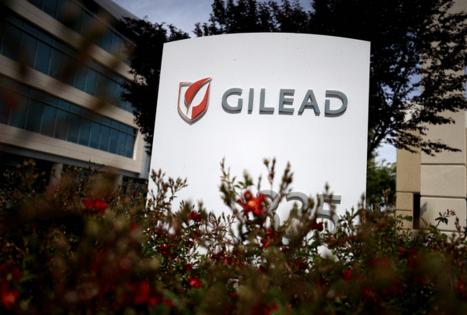Lisa Jarvis: Game-changing HIV shot can't get to high-risk groups fast enough
Published in Op Eds
Revolutionary. A game changer. Spine chilling. Those are some of the words experts used to describe fresh data for lenacapavir, a twice-yearly shot developed by Gilead Sciences for the prevention of HIV.
Their enthusiasm stems from a more succinct word: zero. That’s the number of cases of HIV that developed in the women and adolescent girls who received the drug in a huge study conducted across dozens of sites in South Africa and Uganda.
Lenacapavir has the potential to at long last move the needle on the incidence of HIV. The virus caused some 1.3 million infections and 630,000 deaths in 2022. One expert told me this preventive drug, if given to enough at-risk women, could be the way to get close to eliminating pediatric HIV. Another talked about finally bending infection curves in young women and adolescent girls, who account for 77% of new infections among younger people in sub-Saharan Africa.
But none of that will happen without the right pieces in place to get the drug to everyone who needs it as soon as it receives regulatory clearance. That’s an all-hands-on-deck effort that should be underway now.
Lenacapavir’s advantage is its unique mechanism and monthslong activity. While other HIV antivirals target enzymes the virus needs to replicate, lenacapavir takes aim at the capsid, an eggplant-shaped shell made up of hundreds of proteins that carefully assemble to protect the virus’s genetic material. And it turns out, disrupting that shell works beautifully as a prophylaxis: In the trial, there were no HIV infections in the more than 2,100 women who received the drug, compared with infection rates of 1.5% and 1.8% in women taking Truvada or Descovy, two types of daily pills to prevent HIV infection (also known as PrEP).
“I’ve been doing this for almost 40 years, I have never, ever seen a result like this before,” says Salim Abdool Karim, an infectious disease epidemiologist and director of the Center for the AIDS Programme of Research in South Africa. “To see a 100% efficacious product? It just blew my mind.” (CAPRISA enrolled several hundred women for the study, though Abdool Karim was not directly involved.)
A separate prevention study of lenacapavir in men who have sex with men and transgender people is underway, after which Gilead plans to ask for regulatory approval. (The drug is already on the market in the U.S. and elsewhere as a treatment for HIV.)
But the data involving young women are already extraordinary. The existing options for PrEP — whether daily pills, the dapivirine vaginal ring, or ViiV’s bimonthly shot cabotegravir — have not moved the needle much on rates of infection among young women. “A daily intervention needs a daily decision: ‘I’m going to protect myself,’” says Linda-Gail Bekker, director of the Desmond Tutu HIV Centre at the University of Cape Town and an investigator in the trial.
A wildly effective, twice-annual shot could make a huge difference in bending infection curves, particularly among women and infants.
Yet this astounding success can only come to fruition if lenacapavir reaches the people who need it. That comes down to access and delivery: Lenacapavir needs to be made at a volume that it can be widely available, at a price that makes it widely accessible, and distributed in a way that makes it easy and appealing for everyone to stick with.
The ball is in Gilead’s court on the issues of price and supply. And Gilead is, so far, saying all the right things. The same day it revealed the astonishing trial results, the biotech company announced a two-pronged approach to ensuring lenacapavir can be widely available in the places being hit hardest by HIV. It will form license agreements that allow generic firms to make and sell the drug in low-resource countries hard hit by the HIV epidemic, a strategy used successfully in the past. And until that generic supply is up and running, the company says it will set aside supply for those regions. That’s elicited cautious optimism.
But Gilead will also need to commit to transparency at every step of the process. While the company has made substantial efforts to ensure people in low- and middle-income countries can access its HIV therapies, it also has been criticized for some of its tactics around the price and development of certain medicines. Global health experts would like to better understand which countries will have access to low-cost generic versions of the drug, and be assured that the company will work to transfer not only patents, but know-how to ensure a speedy increase in manufacturing.
That third piece of the equation, delivery, will require a huge effort by global health agencies and their partners to study the most effective way to get the treatment to at-risk groups — not just once, of course, but every six months during the years they might be vulnerable to infection. The work these groups have already done to provide existing forms of PrEP provides a good foundation for distributing lenacapavir, says Carmen Pérez Casas, senior strategy lead at Unitaid. Meanwhile, studies will need to be quickly designed and funded to understand the best way to ensure broad and consistent use of the biannual shot.
This new drug, while astounding, does not obviate the need to keep pushing for an effective HIV vaccine. Yes, the new drug will likely meaningfully reduce infections (which also reduces transmission). But a vaccine that ideally can be administered before puberty is the key to eradicating this deadly virus.
_____
This column does not necessarily reflect the opinion of the editorial board or Bloomberg LP and its owners.
Lisa Jarvis is a Bloomberg Opinion columnist covering biotech, health care and the pharmaceutical industry. Previously, she was executive editor of Chemical & Engineering News.
_____
©2024 Bloomberg L.P. Visit bloomberg.com/opinion. Distributed by Tribune Content Agency, LLC.







Comments